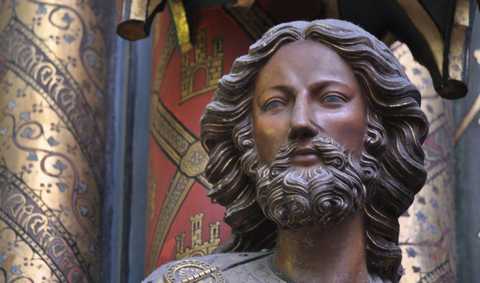In observance of Christmas, I present teachings from the Holy Bible, the principal scripture in the Christian faith.
Merry Christmas! May you all have a day filled with peace and joy.

Christmas and the Season of Goodwill
Christmas is widely celebrated to commemorate the birth of Jesus, the central figure of the Christian faith. Christians believe that Jesus, born to Mary and Joseph, a Jewish couple in Palestine in the first century AD, was the Christ (from the Greek word Khrist?s meaning “the anointed,” or “the chosen one of God”.)
To be precise, in the Christian tradition, December 25 is the first of the twelve days of Christmas. Traditionally, this twelve-day Christmas celebration ends with the feast of “Epiphany,” held on January 6 or on the first Sunday after Christmas.
Over the years, Christmas has transformed into a secular holiday. Historians and religious scholars believe that the December date for the birth of Christ was set around the time of the winter solstice to fit in with pre-Christian pagan traditions of feasting during the occasion of the sun’s annual rebirth, in late December. Besides, the Church of Rome (now the Vatican) did not establish the festival as Christian until the middle of the fourth century.
Christmas Spirit in Action
 No other holiday boasts a richer variety of rituals, traditions, and customs. Christmas celebrations vary around the world in length and style. The Christians attend midnight or Christmas day Church services and set up a Tyrolean crib at home featuring the town of Bethlehem and the manger to commemorate the birth of Jesus Christ.
No other holiday boasts a richer variety of rituals, traditions, and customs. Christmas celebrations vary around the world in length and style. The Christians attend midnight or Christmas day Church services and set up a Tyrolean crib at home featuring the town of Bethlehem and the manger to commemorate the birth of Jesus Christ.
The season of good will is marked by exchange of gifts and greeting cards, sumptuous dinners, familiar hymns and songs, brightly lit trees, red-ribboned wreaths, ornaments and decorations, Santa Claus, and stockings. During the last few decades, the “Christmas shopping season” has become economically imperative as the time of new product introduction and hectic shopping.
The Holy Bible
The Bible (from the Greek word ta biblia, for “the books”) is a compilation of scripture in Judaism and the Christian faiths. It is the most widely read literature in the world.
The Christian Bible consists of the Old Testament and the New Testament. The Old Testament contains nearly all of the same writings as the Hebrew Bible; the New Testament is a collection of writings dating from after the life of Jesus. The New Testament includes the Gospels (the central message of Jesus Christ and the promise of salvation for the faithful,) the Acts of the Apostles (the stories of the few years after Jesus’ death,) the Epistles (details of the Christian faith), and the book of Revelation (a vision for the end of time.)
Inspirational Quotations from the Christian Bible
Let no corrupt communication proceed out of your mouth, but that which is good to the use of edifying, that it may minister grace unto the hearers.
—The Holy Bible (Scripture in the Christian Faith)
Confess your trespasses to one another and pray for one another, that you may be healed. The effective, fervent prayer of a righteous man avails much.
—The Holy Bible (Scripture in the Christian Faith)
Better is the end of a thing than the beginning thereof: and the patient in spirit is better than the proud in spirit.
—The Holy Bible (Scripture in the Christian Faith)
And though I have the gift of prophecy, and understand all mysteries, and all knowledge; and though I have all faith, so that I could remove mountains, and have not charity, I am nothing.
—The Holy Bible (Scripture in the Christian Faith)
Man is born unto trouble, as the sparks fly upward.
—The Holy Bible (Scripture in the Christian Faith)
God is in heaven, and thou upon earth: therefore let thy words be few.
—The Holy Bible (Scripture in the Christian Faith)
The entire law is summed up in a single command, “Love your neighbor as yourself.”
—The Holy Bible (Scripture in the Christian Faith)
You cannot serve God and Mammon.
—The Holy Bible (Scripture in the Christian Faith)
He who attempts to resist the wave is swept away, but he who bends before it abides.
—The Holy Bible (Scripture in the Christian Faith)
The waters wear the stones.
—The Holy Bible (Scripture in the Christian Faith)
The kingdom of God is within you.
—The Holy Bible (Scripture in the Christian Faith)
He that is faithful in that which is least is faithful also in much; and he that is unjust in the least is unjust also in much.
—The Holy Bible (Scripture in the Christian Faith)
Trust in the Lord with all thine heart; and lean not unto thine own understanding. In all thy ways acknowledge Him, and He shall direct thy paths.
—The Holy Bible (Scripture in the Christian Faith)
 The word
The word 